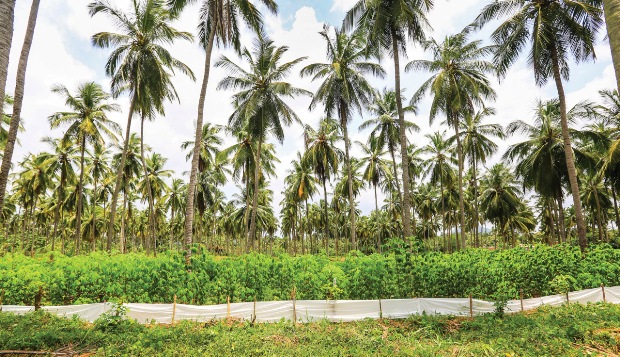COLOMBO – Sri Lanka has gazetted a law banning the felling of coconut trees, under a licensing system that already exists for trees such as bread and jakfruit, creating problems in the future for any homeowner who plans to plant coconut trees in their garden.
The tree felling restriction will also create problems in the future for any landowner who is planning to grow coconut on a commercial scale in any bare land until they can be put for more productive use, observers say.
The ban comes shortly after commercial plantations were ordered to uproot commercial oil palm farms and the import of palm oil was also banned.
Sri Lanka’s colonial administration placed temporary restrictions on felling jak and breadfruit trees unless they posed a danger to houses in 1942 as Japanese and German attacks on food allied merchant shipping disrupted grain trading.
After gaining independence from British rule the island’s elected ruling class enacted a law to permanently stop citizens from cutting their trees and subjected them to the whims of petty bureaucrats.
In fast urbanizing areas such as Kurunegala, coconut lands have been cleared for more productive use.
However, interventionists and the control-oriented elected ruling class triggers outcry whenever money printing pushes up coconut prices or Federal Reserve fires commodity bubbles.
After gaining self-determination from the British and inheriting a law-making Parliament, one of the early acts of the domestic elected ruling class was to violate property rights and expropriate land and businesses from the citizens and non-citizens alike.
Freehold of the people was violated in several ways, halting the switching of crops as well as though what interventionists called laws against ‘fragmentation’ of land. Divisibility however is a fundamental tenet of freehold.
As a result, people who have inherited ancestral land (known colloquially in Sri Lanka as amma-appage-boo-da-lay) are subject to controls by petty bureaucrats and the elected ruling class in the use of their own land, violating the freehold of citizens, critics say.
Sri Lanka has several laws violating freehold including the Paddy Land Act violating the right of farmers to dynamically change crops to suit market demand, and laws against fragmentation of agricultural land with certain crops.
The ousted Yahapalana administration which also engaged in interventionism also brought proposals to further undermine property rights and freehold.
Sri Lanka is now under the worst trade controls since the 1970s, after printing unprecedented volumes of money in so-called Modern Monetary Theory but which economists have pointed out is a more extreme version of a scheme peddled by classical Mercantilists such as John Law, the anti-bullionists, and the banking school.
Under so-called ban-nomics, Sri Lanka has banned to use of chemical fertilizer, banned the import of turmeric, green bean.
-economynext.com


